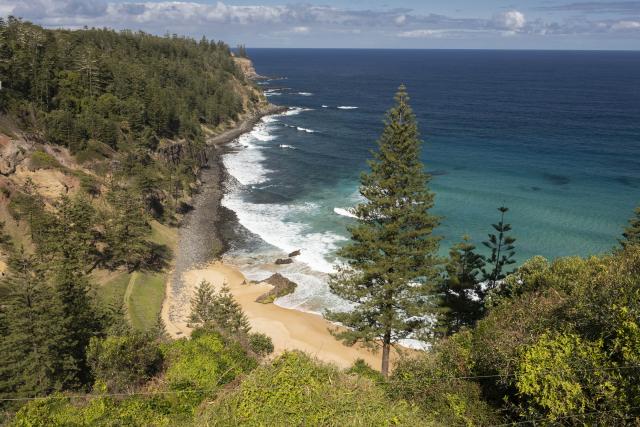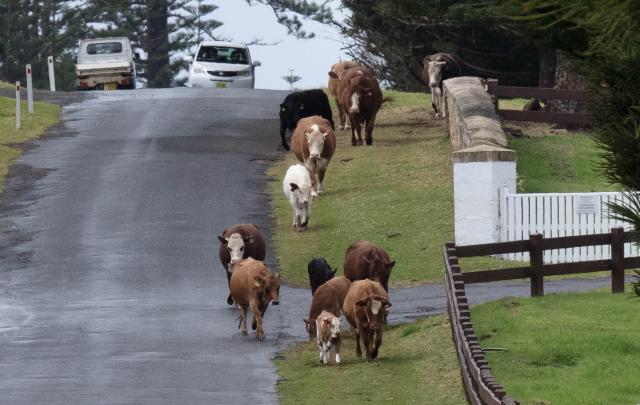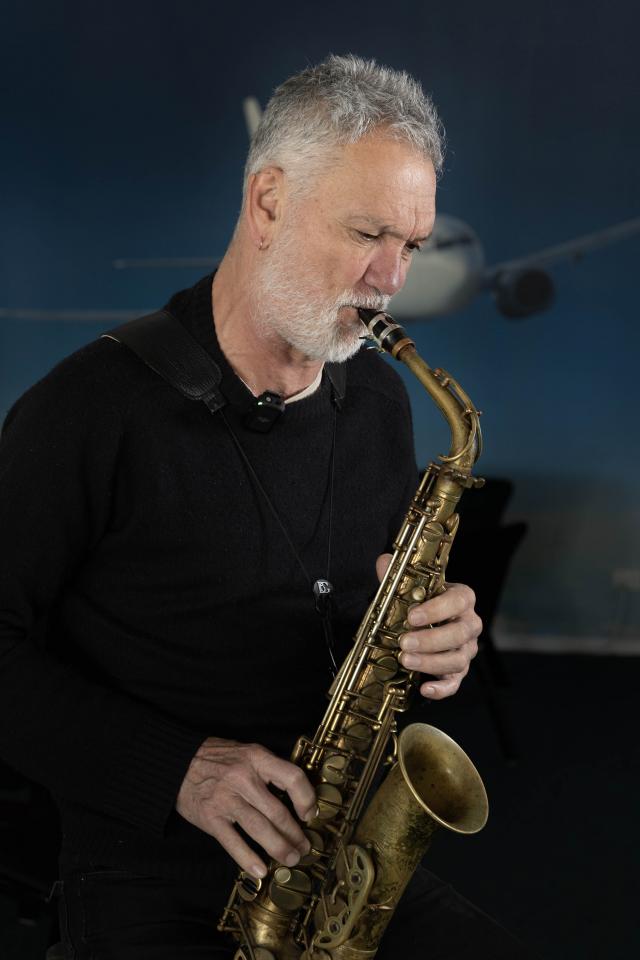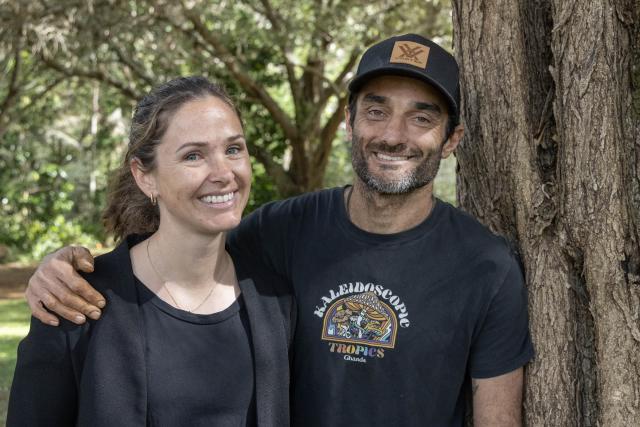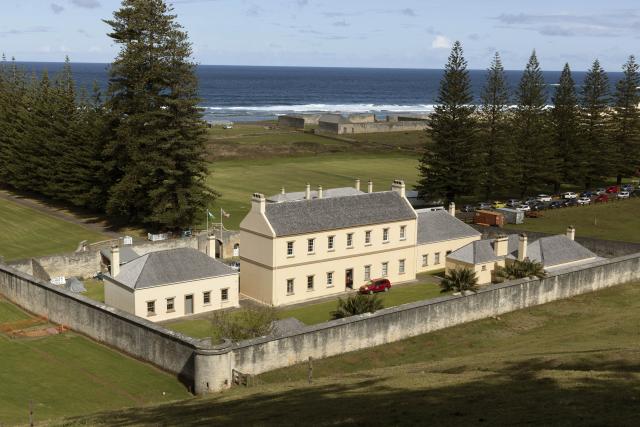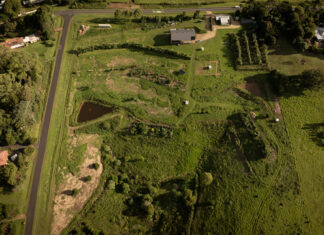There’s only one place in Australia where Thanksgiving Day is celebrated, officially, and that is Norfolk Island which on 29 November will mark the occasion with festivities and a public holiday.
The practice dates back to the 1800s when whalers came to the island from America, dropping off their girlfriends where the locals would teach them dressmaking while the men went to sea.
The ongoing contact with Americans left a legacy in Thanksgiving Day.
On a recent trip to the remote paradise, the similarities between Norfolk Island and Noosa were evident.
With a population of about 2000, 40 per cent of the island National Park, stunning landscapes and an appreciation by the local folk for good food, sustainable farming practices and a strong, proud community, Norfolk Island is reminiscent of an earlier Noosa without the traffic and a slower pace of life.
But its history, culture and its own language set it apart.
Norfolk Island has been home to Polynesian seafarers in the 1300-1400s, a convict settlement on two separate occasions (1788-1814 and 1825-85) and Pitcairn Islanders since 1856, many of whom are descendants of Bounty mutineers.
Lying 1400km dead east of Byron Bay, Norfolk Island is perfect for travellers wanting to explore and it’s spectacular beaches, coral reef, flora and fauna make it a haven for surfers, snorkelers, bushwalkers and, with its general lack of street lights, star gazers.
It’s settlement of convict-built buildings (some still in use), artefacts from the time, historic cemetery and a team of museum staff bring to life the history of the island which captured the eye of Captain James Cook in 1774.
Cook believed its towering Norfolk Island pines, naturally-growing flax and lush vegetation would provide future masts and sails for arriving ships and be a place to grow food for the population. Only a month after Governor Arthur Phillip established the first settlement in Sydney Cove in 1788, Lieutenant Phillip Gidley King arrived on Norfolk Island to establish a settlement with male and female convicts and free men.
Convicts came and went but the Pitcairners, who had outgrown Pitcairn Island, have remained since arriving in 1856 by Royal assent of Queen Victoria.
Covid changed Norfolk Island, like it did Noosa.
People who had grown up on the island and moved away, returned with a greater appreciation of its isolation, clean air, safe environment and stunning beauty.
Among them was Sydney jazz musician Rick Robertson, who came home with his wife, Cathy, and opened Norfolk’s swanky and stylish airport lounge – the Wunna bar.
It’s the sort of venue you’d expect to be owned by a jazz musician.
It’s not what you’d expect in an airport lounge and it isn’t, officially, but located across the road from the airport, it is, Norfolk-style.
In the early ’90s Rick was one of the founding members of the band – DIG – Directions in Groove.
The group enjoyed great success for about a decade before disbanding. They toured nationally and internationally, playing at prestigious festivals including the North Sea Jazz Festival in Rotterdam, Montreux Jazz Festival in Switzerland with stints in London and the US, received an APRA Music Award in 1996 and released four albums.
Rick’s music career carried on with the establishment of bands including Eon Beats, Big Ricky and the Hummingbirds and The Specialists, playing gigs at Sydney’s iconic Establishment Bar and jazz club 505 in Surrey Hills, racking up credits including a gold album, Mo award and two Aria award nominations.
Leading chefs Kurt and Jill Menghetti returned to Norfolk Island prior to Covid and have taken over the family-owned 100 acre farm and Homestead Restaurant.
Having left the island in 1998, Kurt headed to Australia to work in restaurants where he met Jill. During years spent in Sydney, Kurt worked in several high-class establishments including the Baroque Bistro at Sydney Rocks and Lox, Stock and Barrel at Bondi which gained a prestigious chef’s hat in his second year there, before the couple returned to Norfolk with their children.
The Homestead embraces the farm to plate philosophy, its importance becoming even more obvious in the isolated community during Covid. A sharefarmer runs cattle on the land, they buy their fish fresh from local fishermen and with pigs and chickens and a huge vegetable garden, the majority of produce comes from their farm.
“When you take a plate out to the table you know where it comes from and if anyone’s interested, you can tell them where it comes from, and it blows them away,“ Kurt said.
You won’t find large resorts on the island, but the locals will welcome you at hotels, home rentals and AirBnb and excellent restaurants and cafes.
There aren’t many places in the world where you can hit off for a round of golf alongside a historic convict settlement on a UNESCO World Heritage Site, but you can on Norfolk Island.
Hire a car and explore the island’s 120 kilometres of roads or drop into the visitor information centre and book into one of a wide variety of tours.
If you’re driving, don’t forget to give a wave to every car you pass, and mind the cows that wander freely across the island, as they have right of way.
Qantas flies to Norfolk Island three times a week from Brisbane and Sydney and Australians don’t even need a passport.
For more information, visit norfolkisland.com.au

